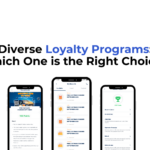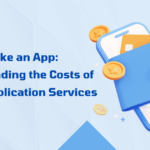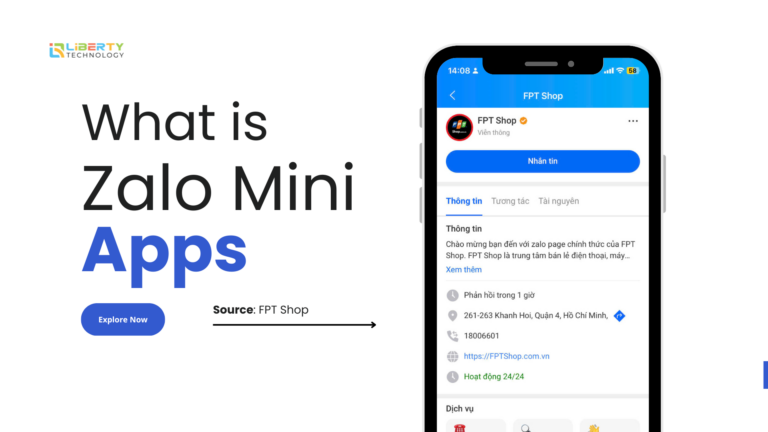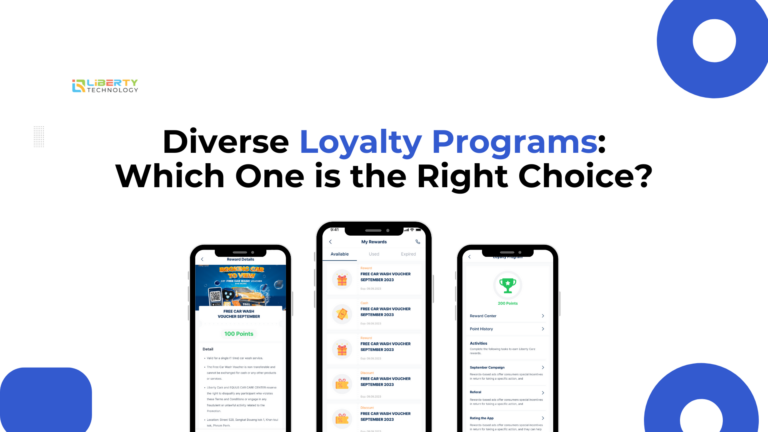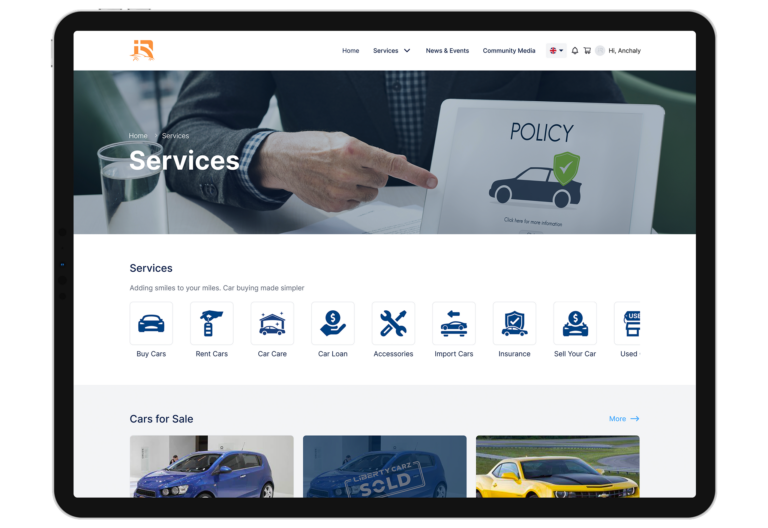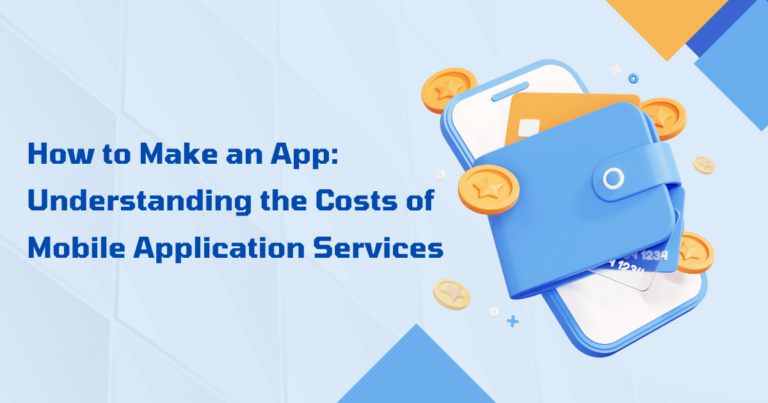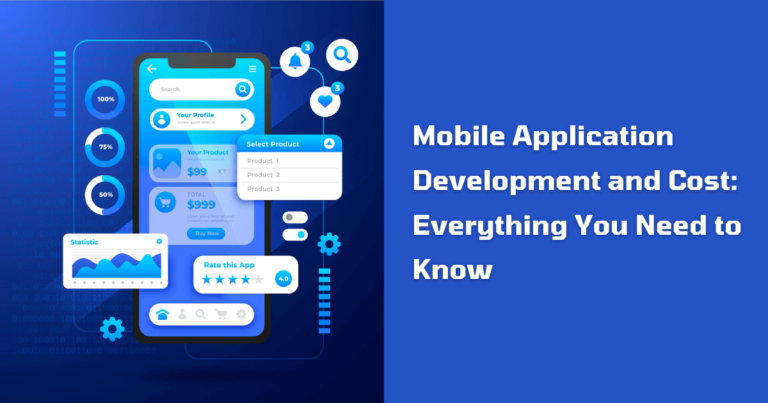In today’s digital age, mobile app development for businesses is not just an advantage—it’s a necessity for staying competitive and relevant. In this blog, as a specialist in advanced mobile app development, Liberty Technology will give you a deeper look at the benefits of mobile apps and why develop a mobile app for your business, illustrated with examples.

Cultivating customer loyalty – Mobile Application
In competitive markets, customer loyalty is golden. Mobile apps offer a unique advantage by enhancing repeat business opportunities and referrals. They facilitate easy communication between businesses and customers, fostering continued engagement.
This ongoing interaction allows businesses to monitor and adapt to customer behaviors, improving satisfaction cost-effectively. Also, mobile apps help businesses plan better for the future and improve their products or services with things like reward programs, which encourage customers to buy again.
Amplifying marketing efforts – Mobile Application
Mobile apps are great for marketing. By having people download the app, you naturally draw in those who are interested in what you offer.
This lets marketing teams use specific strategies based on how people use the app, making promotions more effective. Apps also let smaller businesses quickly start and change marketing campaigns without spending a lot, helping them to target their promotions better and quickly catch the interest of the market.
Enhancing online shopping experience – Mobile Application
In today’s world, making sure online shopping is great is very important. As more people use the internet to buy stuff, businesses need to make their online shopping better to keep up and stay ahead. This change is necessary for growing and keeping customers.
Customers now want to be able to shop whenever and wherever they like. Mobile apps help with this by making it easy to buy things inside the app, offering a handy way to shop.
As more folks get used to shopping on their phones, companies are seeing more sales from smartphone orders. This shows just how key mobile apps have become for shopping today.
Supporting omnichannel strategies – Mobile Application
Omnichannel is a strategy that businesses use to provide their customers with a seamless and integrated shopping experience, no matter how they choose to shop: online from a mobile device or computer, by telephone, or in a brick-and-mortar store.
The idea is to connect all these channels so customers can switch between them effortlessly while still receiving a consistent level of service and engagement from the business. This approach helps in creating a more connected and personalized shopping experience for customers.
Mobile apps play an essential role in this strategy. They empower customers to make purchases directly from their smartphones, significantly enhancing the overall shopping journey. By making your services accessible through a mobile app, you bridge the gap between online and offline experiences, offering flexibility and convenience that today’s consumers expect.
For businesses looking to adopt this customer-centric strategy, understanding the app development process is crucial. Developing a mobile app that fits seamlessly into your omnichannel approach involves careful planning, design, and execution. It’s not just about creating an app; it’s about designing a tool that enhances your customer’s journey across all platforms.
Monitoring customer relationships – Mobile Application
Understanding customer preferences and behaviors is crucial. While customer surveys offer some insights, mobile apps provide a deeper understanding by tracking app usage, promotional interests, and direct feedback. This data is invaluable for maintaining positive customer relationships.
Imagine a coffee shop chain called “Cafe Delight” that has its own mobile app. Customers use the app to place orders, earn loyalty points, and receive exclusive offers. The app tracks what types of coffee and pastries are most popular, when people are most likely to place an order, and which promotions receive the most attention.
For example, “Cafe Delight” notices through the app that many customers order a specific type of latte on Monday mornings but that there’s also interest in health-oriented breakfast options that aren’t currently on the menu. Based on direct feedback collected through the app, customers express a desire for more gluten-free and vegan pastry options.
Using this detailed information, “Cafe Delight” decides to introduce a new line of healthy breakfast items and promotes it heavily through the app. The promotion includes a special offer for app users to try the new menu items at a discounted price.
As a result, “Cafe Delight” not only sees an increase in orders for the new menu items but also strengthens its relationship with customers by showing that it listens and responds to their preferences. This deep understanding and positive engagement help “Cafe Delight” maintain a loyal customer base and attract new customers looking for healthier breakfast options.
Boosting brand awareness – Mobile Application
Mobile apps keep customers engaged over time through push notifications about new products and promotions. These notifications, coupled with targeted marketing based on user data, keep a brand prominently in customers’ minds, driving digital traffic and revenue growth.
Leveraging data mining – Mobile Application
The data collected through mobile apps presents vast opportunities for understanding customer patterns and responses to marketing strategies. When combined with data from other sources, like social media, businesses gain a comprehensive view of customer interests and trends, enabling them to tailor their offerings more effectively.
If you think it’s time for your business to have its own mobile app, get in touch with Liberty Technology. With our mobile applications services, we will help you figure out what your app needs to do, build it for you, and show you how to get it to your customers.
Just send us an email at [email protected], and let’s start making your mobile app today!
Conclusion
This dive into mobile app development for businesses shows just how crucial it is in today’s online world. From improving how customers interact with your business to providing unmatched insights into the market, the benefits of mobile apps are wide-ranging. Every business looking to expand should think about the benefits of mobile apps and include app development in its main digital strategy.
In essence, the development of a mobile application is not just a technological advancement; it’s a strategic move toward securing a business’s future in an increasingly digital world.



